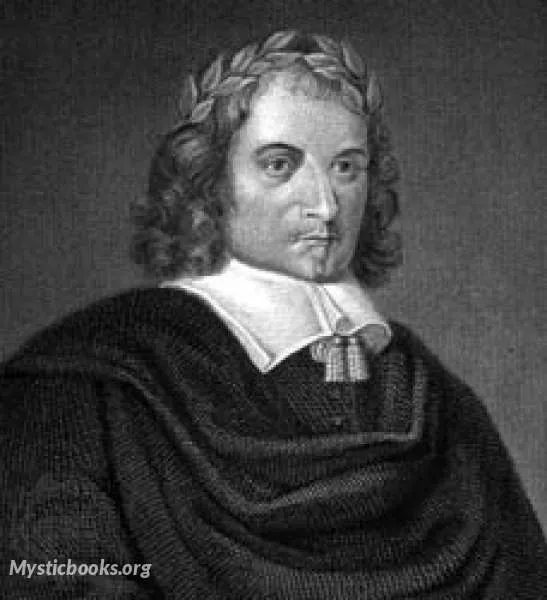
Timeline
Title
Country/Nationality
Thomas Middleton
Thomas Middleton was an English Jacobean playwright and poet. He, with John Fletcher and Ben Jonson, was among the most successful and prolific of playwrights at work in the Jacobean period, and among the few to gain equal success in comedy and tragedy. He was also a prolific writer of masques and pageants.
Middleton was born in London and baptised on 18 April 1580. He was the son of a bricklayer, who had raised himself to the status of a gentleman and owned property adjoining the Curtain Theatre in Shoreditch. Middleton was five when his father died and his mother's subsequent remarriage dissolved into a 15-year battle over the inheritance of Thomas and his younger sister – an experience that informed him about the legal system and may have incited his repeated satire against the legal profession.
Middleton attended The Queen's College, Oxford, matriculating in 1598, but he did not graduate. Before he left Oxford sometime in 1600 or 1601, he wrote and published three long poems in popular Elizabethan styles. None of them appears to have been especially successful, and one, his book of satires, ran foul of an Anglican church ban on verse satire and was burned. Nevertheless, his literary career was launched.
In the early 17th century, Middleton made a living writing topical pamphlets, including one – Penniless Parliament of Threadbare Poets – that was reprinted several times and became the subject of a parliamentary inquiry. At the same time, records in the diary of Philip Henslowe show that Middleton was writing for the Admiral's Men. Unlike Shakespeare, Middleton remained a free agent, able to write for whichever company hired him. His early dramatic career was marked by controversy. His friendship with Thomas Dekker brought him into conflict with Ben Jonson and George Chapman in the War of the Theatres. The grudge against Jonson continued as late as 1626, when Jonson's play The Staple of News indulges in a slur on Middleton's great success, A Game at Chess. It has been argued that Middleton's Inner Temple Masque (1619) sneers at Jonson (then absent in Scotland) as a "silenced bricklayer".
In 1603, Middleton married. In the same year an outbreak of the plague forced the London theatres to close, while James I came to the English throne. These events marked the beginning of Middleton's greatest period as a playwright. Having passed the time during the plague composing prose pamphlets (including a continuation of Thomas Nashe's Pierce Penniless), he returned to drama with great energy, producing almost a score of plays for several companies and in several genres, notably city comedy and revenge tragedy. He continued to collaborate with Dekker: the two produced The Roaring Girl, a biography of the contemporary thief Mary Frith.
In the 1610s, Middleton began a fruitful collaboration with the actor William Rowley, producing Wit at Several Weapons and A Fair Quarrel. Working alone in 1613, Middleton produced a comic masterpiece: A Chaste Maid in Cheapside. He also became increasingly involved with civic pageants, and in 1620 became officially appointed as chronologist to the City of London, a post he held until his death in 1627, when it passed to Jonson.
Such official duties did not interrupt Middleton's dramatic writing; the 1620s saw the production of his and Rowley's tragedy The Changeling, and of several tragicomedies. In 1624, he reached a peak of notoriety when his dramatic allegory A Game at Chess was staged by the King's Men. The play used the conceit of a chess game to present and satirise the recent intrigues surrounding the Spanish Match. Though Middleton's approach was strongly patriotic, the Privy Council silenced the play after nine performances, having received a complaint from the Spanish Ambassador. Middleton faced an unknown, probably frightening degree of punishment. Since no play later than A Game at Chess is recorded, it has been suggested that the sentence included a ban on writing for the stage.
Middleton died at his home at Newington Butts in Southwark in 1627, and was buried on 4 July in St Mary's churchyard.
Books by Thomas Middleton
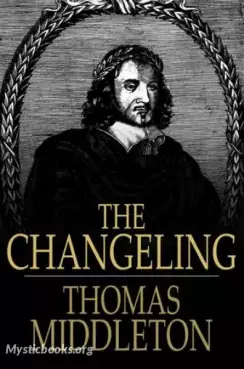
The Changeling
The Changeling is a Jacobean tragedy written by Thomas Middleton and William Rowley. Widely regarded as being among the best tragedies of the English Renaissance, the play has accumulated a large amount of critical commentary.
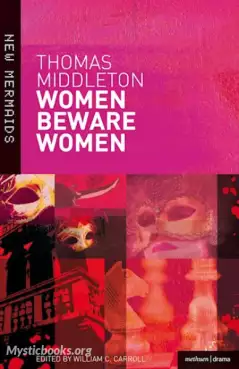
Women Beware Women
Women Beware Women tells the story of Bianca, a woman who escapes from her rich home to elope with the poor Leantio. Fearful and insecure, Leantio requires that his mother lock Bianca up while he is away. While she is locked up, the Duke of Florence...
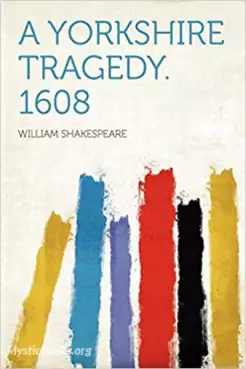
A Yorkshire Tragedy
A Yorkshire Tragedy is an early Jacobean era stage play, a domestic tragedy . The play was originally assigned to William Shakespeare, though the modern critical consensus rejects this attribution, favouring Thomas Middleton.
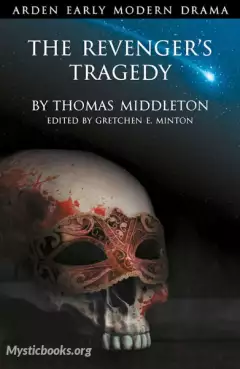
The Revenger's Tragedy
The Revenger's Tragedy is an English-language Jacobean revenge tragedy which was performed in 1606, and published in 1607 by George Eld. It was long attributed to Cyril Tourneur, but "The consensus candidate for authorship of The Revenger’s Tragedy a...
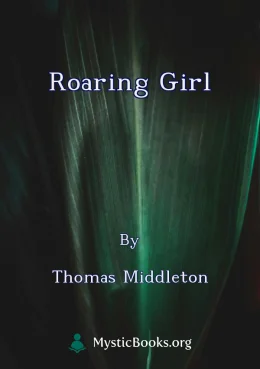
Roaring Girl
The Roaring Girl is a lively and entertaining Jacobean comedy that follows the adventures of Moll Cutpurse, a notorious cross-dressing figure from 17th century London. The play combines elements of farce, romance, and social satire to create a portra...
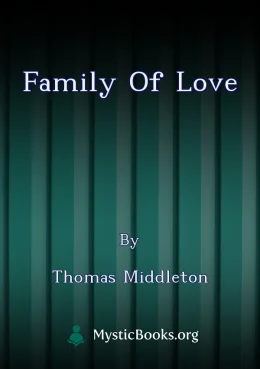
Family of Love
The Family of Love is a Jacobean comedy that lampoons the Familia Caritatis, a religious sect known for its unconventional beliefs and practices. The play revolves around several characters caught in a web of love, deception, and social satire. Gerar...